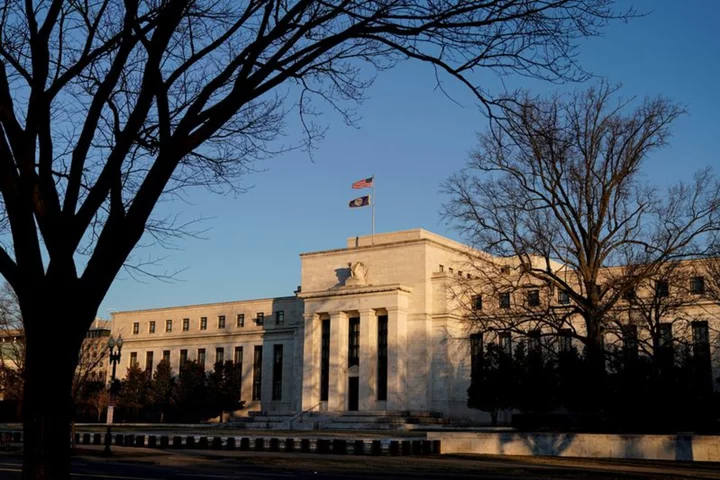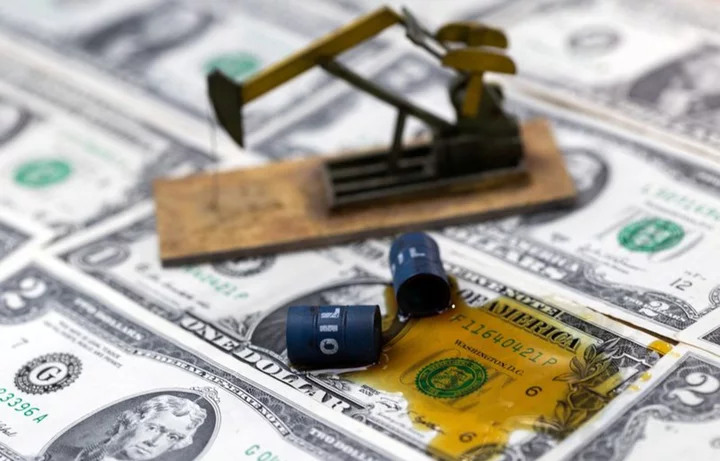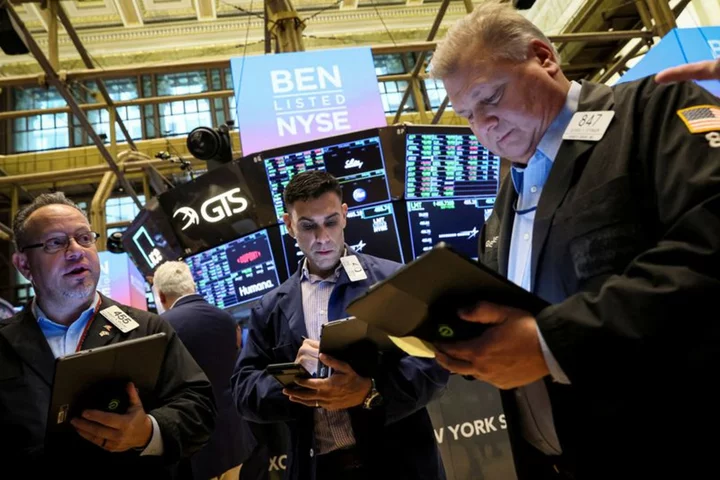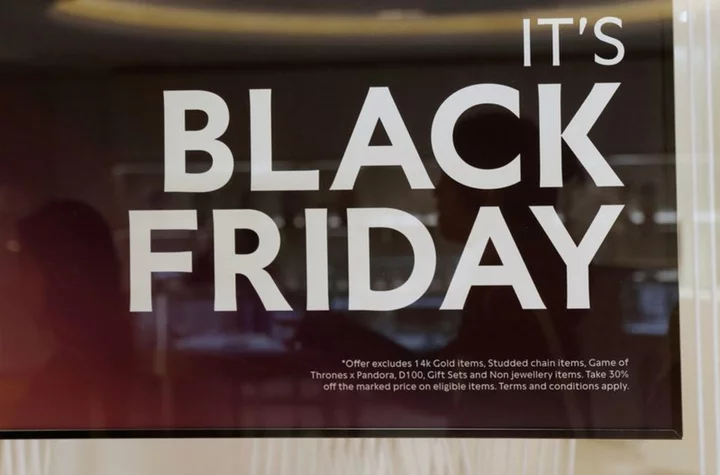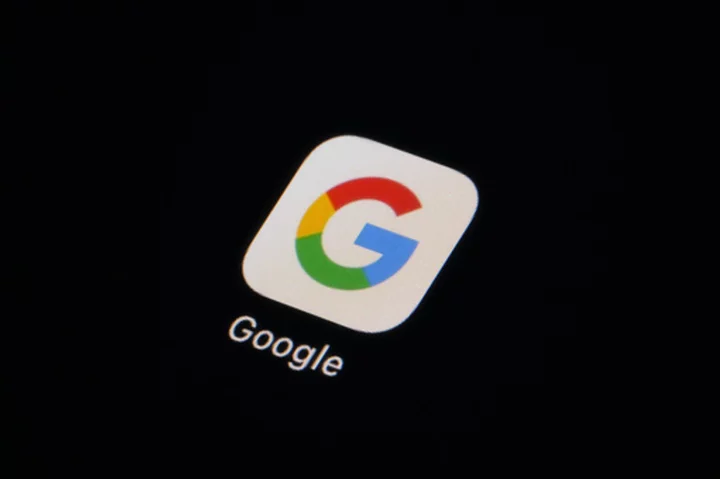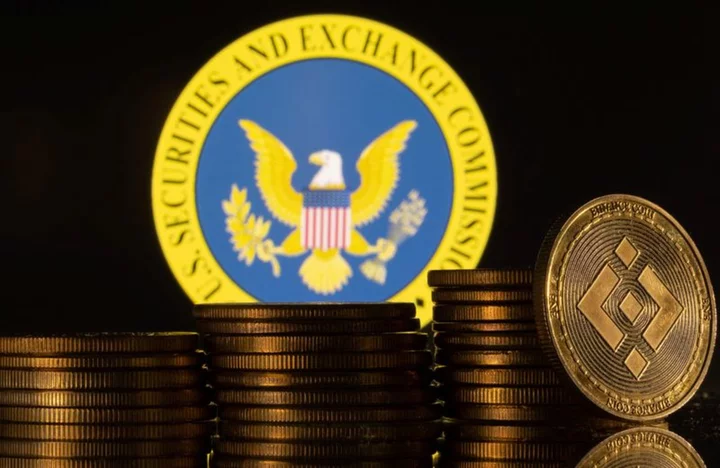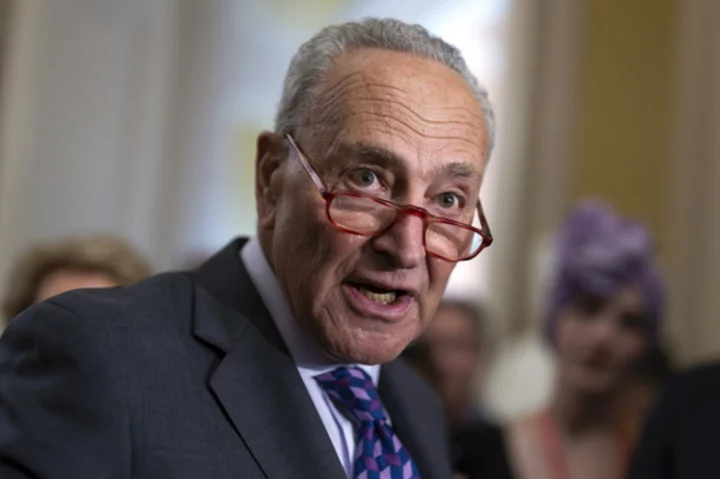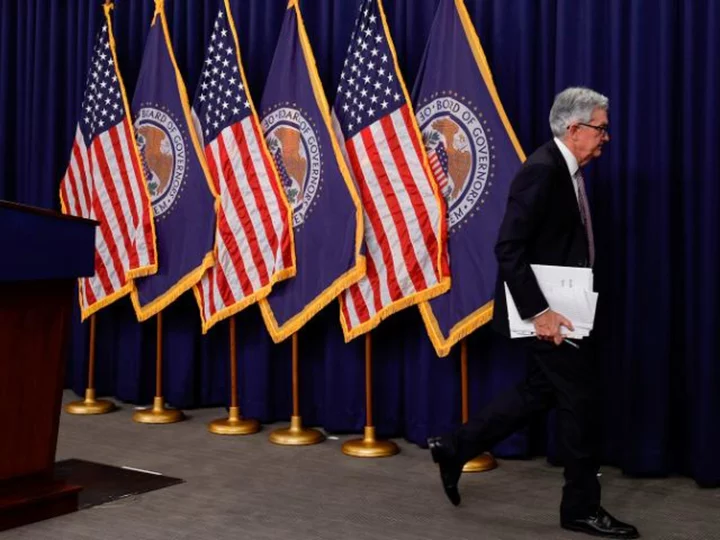By Ann Saphir and Michael S. Derby
(Reuters) -Federal Reserve policymakers got a dose of unexpectedly strong U.S. economic data on Friday that bolstered the case for further monetary policy tightening to bring down persistently high inflation.
Consumer spending surging 0.8% last month from March was good news in showing the economy is not on the precipice of a recession, but discomforting for policymakers looking for a slowdown that could ease upward pressure on prices.
And an increase in underlying core inflation to 4.7%, up from a 4.6% pace in March, underscored the less-than-steady progress on the Fed's inflation fight. The U.S. central bank targets A 2% inflation goal.
Coupled with what appeared to be some progress in Washington on a deal to raise the debt limit and avoid a catastrophic U.S. default, the latest clutch of data throws doubt on whether the Fed will indeed "pause" its rate-hike campaign, as Chair Jerome Powell signaled it might earlier this month.
"Right now, when I look at the data and when I look at what's happening with the inflation numbers, I do think we are going to have to tighten a bit more," Cleveland Fed President Loretta Mester told CNBC. In March Mester had already expected the Fed to raise the policy rate beyond its current 5.00%-5.25% range.
But, in a tacit nod to the dovish wing of the Fed policysetting committee who favor a more wait and see approach, she also said it is too soon to precommit to a June hike.
"We've made progress; now it's this calibration exercise, and that's what's difficult," she said.
Interest-rate futures traders see less subtlety in the numbers and are now betting the Fed will deliver an 11th straight interest rate hike in June, a reversal from bets on a June pause as of earlier in the day and on most days since the Fed's last rate hike on May 3.
Analysts at LHMeyer, who previously figured the Fed was done raising rates, on Friday said they now see the Fed taking its benchmark up two more notches, to 5.6%, before stopping.
A SKIP STILL POSSIBLE
A rate hike next month is not a done deal: still to come before the Fed's June 13-14 meeting is a key read on the labor market due next Friday and fresh data on inflation expected on June 13.
Fed policymakers also say they are watching credit conditions closely, though Mester on Friday said that so far she's not seeing worrisome "extra" tightening from the recent regional bank failures.
Expectations are growing though that even if the Fed leaves rates unchanged in June, it will pull the trigger in July. Odds in futures markets are running three to one in favor of a rate hike by then.
Fed Governor Christopher Waller - one of the Fed's more hawkish voices - teed up that notion earlier this week. While key data in coming weeks as well as uncertainty over credit conditions could support temporarily leaving rates on hold, he said, the lack of progress on inflation points to the need for further tightening.
Other Fed policymakers have echoed that hawkish call. "Inflation so far doesn't show much signs of cooling, which all being said suggests maybe we have more work to do with monetary policy,” Minneapolis Fed President Neel Kashkari told Reuters on Monday.
Households do project inflation to ebb in the next year, to 4.2%, a University of Michigan survey showed Friday. The Fed believes expectations about future price pressures exert a strong influence on current readings.
(Reporting by Ann Saphir and Michael S. Derby with reporting by Shristi Achar; Editing by Jason Neely, Chizu Nomiyama and Andrea Ricci)

